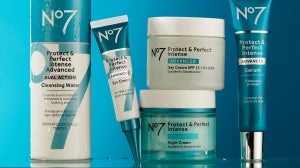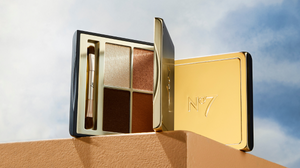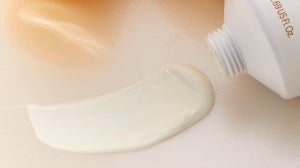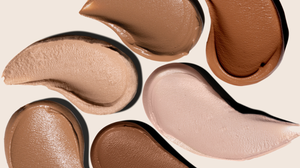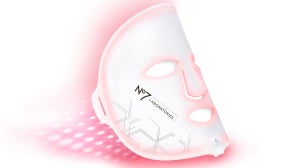
You may have heard about your gut microbiome, but did you know your skin is home to billions of friendly, living microorganisms too? Read on to discover more about this incredible & diverse invisible ecosystem, known as the skin microbiome or skin flora.
What is the skin microbiome?
The skin microbiome is a complex and dynamic ecosystem of microorganisms that reside on the surface of your skin. These microorganisms include around a thousand different species of bacteria, fungi, viruses and even mites. It’s a diverse community that’s working to help keep you healthy and your skin in good condition. They coexist in a delicate balance, creating a protective barrier against harmful invaders. Think of it as your skin's own defense force, working around the clock to help keep your skin healthy.
Studies show that healthier skin typically has a more diverse microbiome. The most common residents of your skin flora are bacteria, and they play a pivotal role in maintaining skin health. In a nutshell, your skin microbiome plays a key role in helping to keep your skin looking and feeling healthy and glowing.
What makes your skin microbiome so interesting?
Your skin’s microbiome is a truly fascinating world to discover. Firstly, it’s unique to you— just like your fingerprint. Whilst there are similarities in everyone’s microbiome, your individual skin flora is directly affected by your personal genetics, lifestyle, area you live, diet and even if you own pets or not. From your face and your underarms to your toes, your skin microbiome is made up differently across all the various parts of your skin.
Skin flora is a relatively new area of scientific discovery and we’re continually discovering more about its complex nature and purposes. For example, scientists have recently shown there is a difference between the microbiome in dry skin compared to other skin types.
How does your microbiome benefit your skin?
Your skin is your body’s largest organ and the skin microbiome plays an active role in both your skin's wellbeing and your overall health in general. Here are some of the essential roles it plays:
Protecting your skin: Your skin microbiome acts as a protective shield, preventing harmful microorganisms from invading your skin. It's like having a security team on your skin's surface, keeping out unwanted guests that could lead to infections and skin issues.
Managing skin pH: Your skin has a slightly acidic pH which is important for maintaining its integrity and preventing infections. The skin microbiome may help regulate this pH, ensuring it stays within the optimal range.
Supporting the skin barrier: Your skin has a natural barrier made up of lipids, fats and proteins. This barrier helps lock in moisture and keep out pollutants and irritants. The microbiome contributes to the maintenance of this barrier, ensuring it functions properly.
What happens when your skin microbiome is out of balance?
Keeping your skin microbiome’s delicate balance is essential for your skin to stay as healthy and resilient as possible. When disturbed by factors such as lack of sleep, harsh skincare products or everyday stress, the natural ecosystem may start to function less effectively, compromising the skin’s protective barrier. Even if you don’t immediately notice any changes to the look and feel of your skin, with time, this could lead to more skin problems arising. In fact, scientific research is now beginning to show that a significant imbalance in the skin’s flora could be linked to disorders such as eczema.
When the natural harmony of your skin microbiome is disrupted, it can result in skin irritation. Your skin becomes less able to handle everyday triggers such as everyday stress, hormonal fluctuations, sun exposure, pollution or allergens such as pollen. This in turn can cause several issues to arise:
Lack of radiance: Your skin’s microbiome is what helps keep your skin healthy and glowing, so one of the first signs you may notice when your skin’s microbiome becomes imbalanced is a lack of natural radiance in your complexion.
Skin sensitivity: An imbalanced microbiome can make your skin more susceptible to irritants and allergens, leading to redness, itching and discomfort.
Excessive oiliness and blemishes: Disruptions in the skin microbiome can create an environment of acne-causing bacteria, potentially leading to breakouts and blemishes.
Dryness: Imbalances can affect the production of essential skin lipids and nutrients, leading to dry, flaky skin.
Premature ageing: A disrupted microbiome may not provide the necessary support for your skin's anti-ageing processes, potentially accelerating the signs of ageing.
Infections: With more serious levels of imbalance, the skin’s protective barrier becomes compromised and more vulnerable to infections, including fungal and bacterial infections.
What can you do to maintain your skin microbiome?
Now, you might be wondering how to keep your skin microbiome in harmony. Just as you nurture your gut microbiome with a balanced diet and a healthy lifestyle, you can take steps to support your skin microbiome giving you the healthy, radiant skin you deserve:
Gentle cleansing: Avoid harsh cleansers and excessive scrubbing, as these can disrupt the skin microbiome. Opt for gentle cleansers that respect your skin's natural ecosystem. Try No7 Derm Solutions Calming Gel Cleanser or No7 Derm Solutions Comforting Cream Cleanser, both of which help to maintain the skin’s delicate moisture barrier and are dermatologist approved.
Moisturise: Good hydration helps maintain the skin barrier and supports a healthy microbiome. We recommend trying No7 Derm Solutions Lightweight Hydrating Moisturiser or No7 Derm Solutions 100hr Hydration Cream which support the skin’s moisture barrier, providing up to 100 hours of skin hydration.
Sun protection: Protect your skin from UV radiation by using a sunscreen of SPF 30 or higher daily. Sun damage can increase irritation of the skin and affect the skin microbiome.
Try a skin cycling routine: A ground-breaking skincare technique known as ‘skin cycling’ incorporates ‘rest days’ which allows the skin to recover from product use, effectively reducing irritation. You can learn more about implementing this skincare regime for yourself by taking a look at our post on balanced vs. unbalanced skin.
Keeping your skin microbiome happy and in balance may be the key to a glowing complexion that's uniquely yours.



